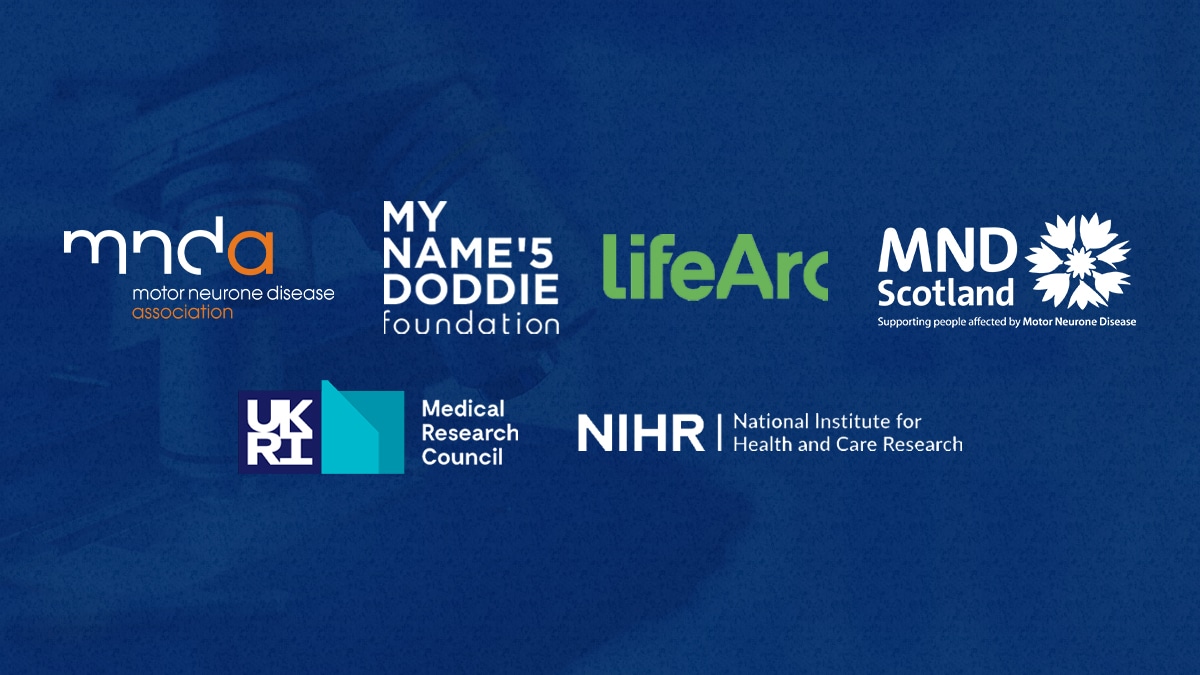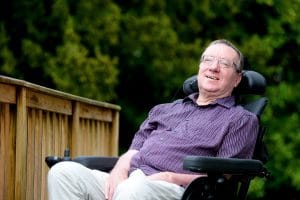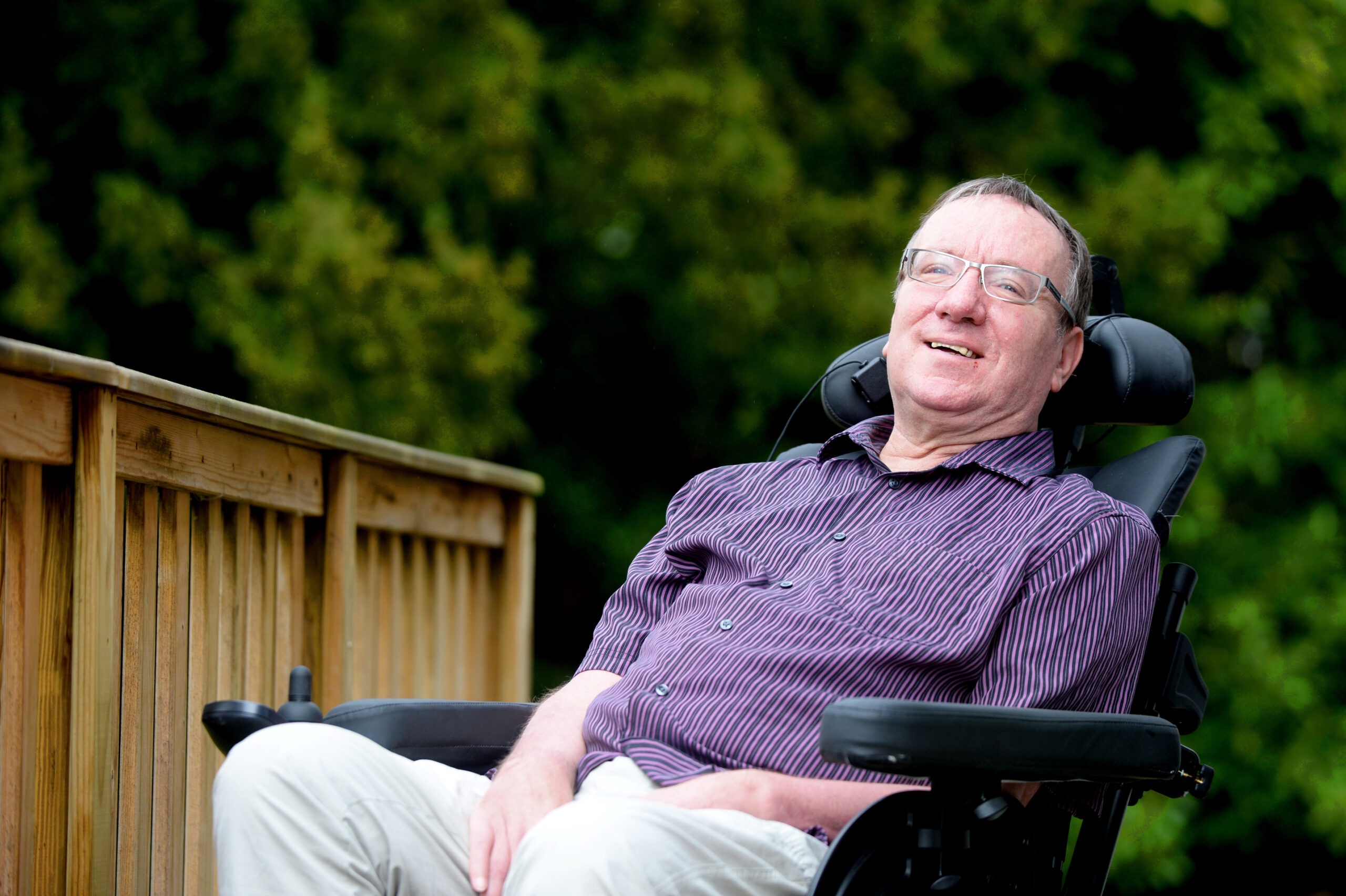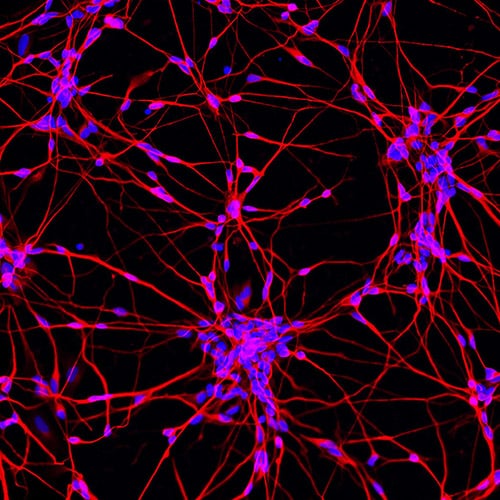A group of charities and government research organisations has awarded £4.25 million to MND experts at six UK universities to kick start collaborative efforts to end motor neuron disease (MND).
This new ‘MND Collaborative Partnership’ brings together people living with MND, charities LifeArc, MND Association, My Name’5 Doddie Foundation and MND Scotland, government bodies Medical Research Council (MRC) and National Institute for Health and Care Research (NIHR), with researchers from King’s College London, University of Sheffield, University of Liverpool, University College London, University of Oxford and University of Edinburgh. The partnership team will work together to find solutions to address problems currently hindering MND research and seeks to discover meaningful treatments within years, not decades.
We, together with members of this new UK-wide MND research partnership will work together and pool their expertise over three years to:
- coordinate research effort and deliver maximum impact for people with MND
- develop better tests to measure MND progression and that allow doctors to compare different drugs
- improve MND registers so doctors can collect detailed, high-quality data about the disease, and understand which patients are most likely to respond to a particular drug and therefore recommend them for the trials most likely to benefit them
- support people to take part in clinical trials more easily
- develop more robust lab tests and models of disease to enable scientists to test theories about the disease and a pipeline of potential therapeutic agents that could ultimately be used as MND treatments.
They will also launch a major new study involving 1,000 people with MND from across the UK to better understand disease progression and how people respond to new and existing treatments.

About MND
MND (also known as amyotrophic lateral sclerosis, or ALS) is a devastating neurodegenerative disease affecting the brain and spinal cord. People progressively lose nearly all voluntary movement and need complex care, and around half of those diagnosed die within two years. Six people are diagnosed with MND every day in the UK and the condition affects around 330,000 across the world. One person in every 300 will develop MND.
The only licensed drug for MND in the UK has a modest effect on extending life – but no treatments are available that can substantially modify disease or cure the condition.
Working together to bring hope
Professor Ammar Al-Chalabi, co-director of the research programme and Professor of Neurology and Complex Disease Genetics at King’s College London and Director of King’s MND Care and Research Centre said: “Our goal is to discover meaningful MND treatments within years, not decades. This landmark funding will bring the UK’s major MND research centres together for the first time in a coordinated national effort to find a cure.
“We now have a much better understanding of MND, so we must take this opportunity to accelerate development of new treatments and work together to move this knowledge into the clinic and help people affected by this devastating disease.”
Dr Catriona Crombie of LifeArc, the charity which has coordinated efforts from all funders to deliver this landmark MND Collaborative Partnership, said: “Over recent years, scientists have made great progress in MND, and this has opened up several promising avenues that could ultimately make a difference to patients. But there are some barriers hindering progress.
“For the first time, the MND community – that’s patients, funders, scientists and doctors – have come together to work out the problems and plan a way forward. As funders we are really excited at what this exceptional group of people could achieve for those affected with MND.”

David Setters, who is living with MND and has been involved in shaping the partnership said: “We welcome this collaboration, which paves the way for the £50 million government investment promised in November 2021, focused on making the first meaningful treatments for MND available within years, instead of decades.
“It brings real hope to those of us living with MND to see our leading neuroscientists and charities coming together in this way. The prospect of easier access to clinical trials and the most promising therapies being fast-tracked gives us a much-needed boost and brings a real sense of purpose to the community.”
Professor Christopher McDermott, one of the co-directors of the research programme and Professor of Translational Neurology at the Sheffield Institute for Translational Neuroscience (SITraN) said: “We believe that by combining and coordinating our expertise, we will be more effective than if we work on projects in isolation.
“This partnership will provide the infrastructure to attract additional MND funding and enable further MND centres and researchers to join forces in the national effort to find effective treatments for MND. The partnership is the first step towards our goal to establish a national MND institute.”
Health and Social Care Secretary Sajid Javid said: “Motor neuron disease has a devastating impact on those who are diagnosed, their families and loved ones – but there is hope. This new partnership is a highly ambitious approach which will drive progress in MND research and, backed by £1 million of government funding, will bring the MND research community together to work on speeding up the development of new treatments.
“The collaboration across government, charities, researchers, industry and people with MND and their families will take us one step closer to one day achieving a world free from MND.”
The Partnership was formed in 2021 to coordinate and pool funding for research into MND to speed up progress and help research to move towards the clinic and ultimately reach patients faster. Funding for the MND Collaborative Partnership research grant totals £4.25 million and contributions are as follows: LifeArc (£1 million), MND Association (£1 million), My Name’5 Doddie Foundation (£1 million), MND Scotland (£250,000), Medical Research Council (MRC) (£500,000) and National Institute for Health and Care Research (NIHR) (£500,000).
Media contact
Hannah Severyn
Head of Media and PR at LifeArc
hannah.severyn[at]lifearc.org




